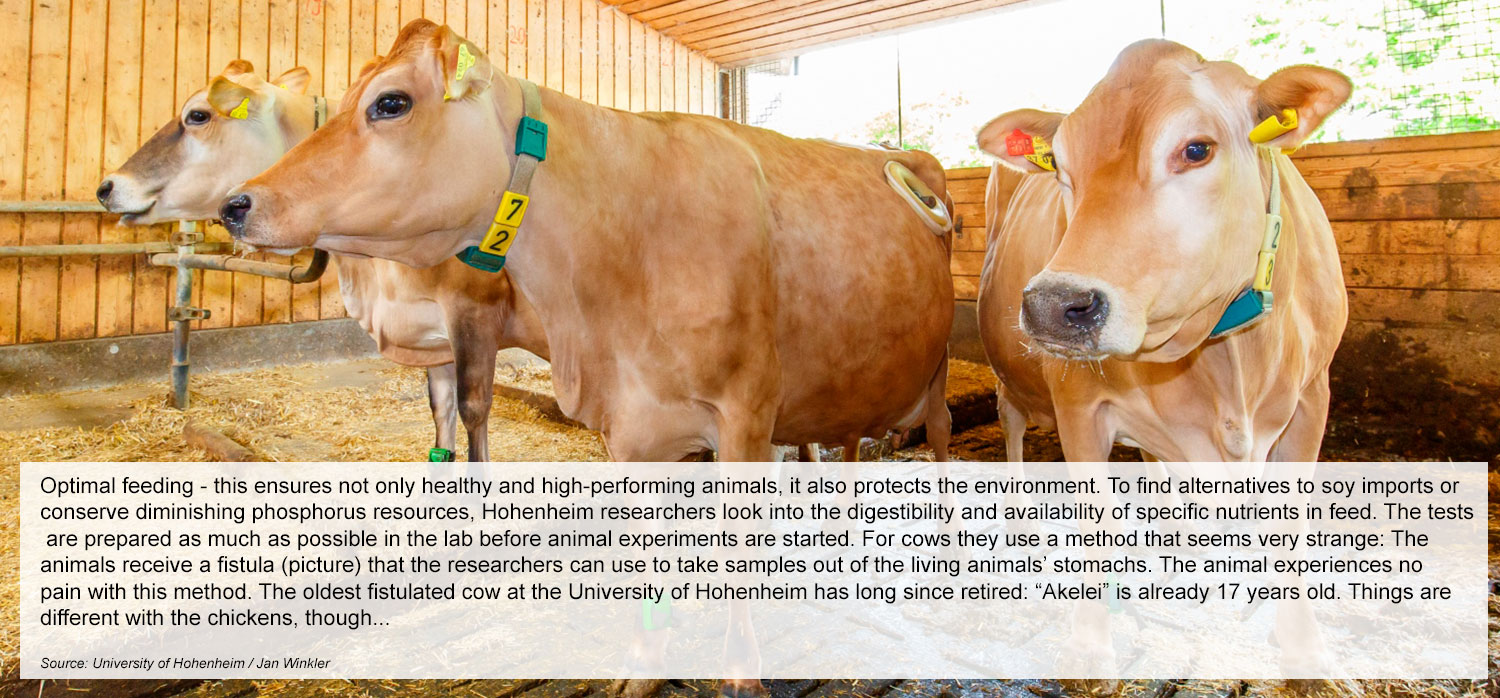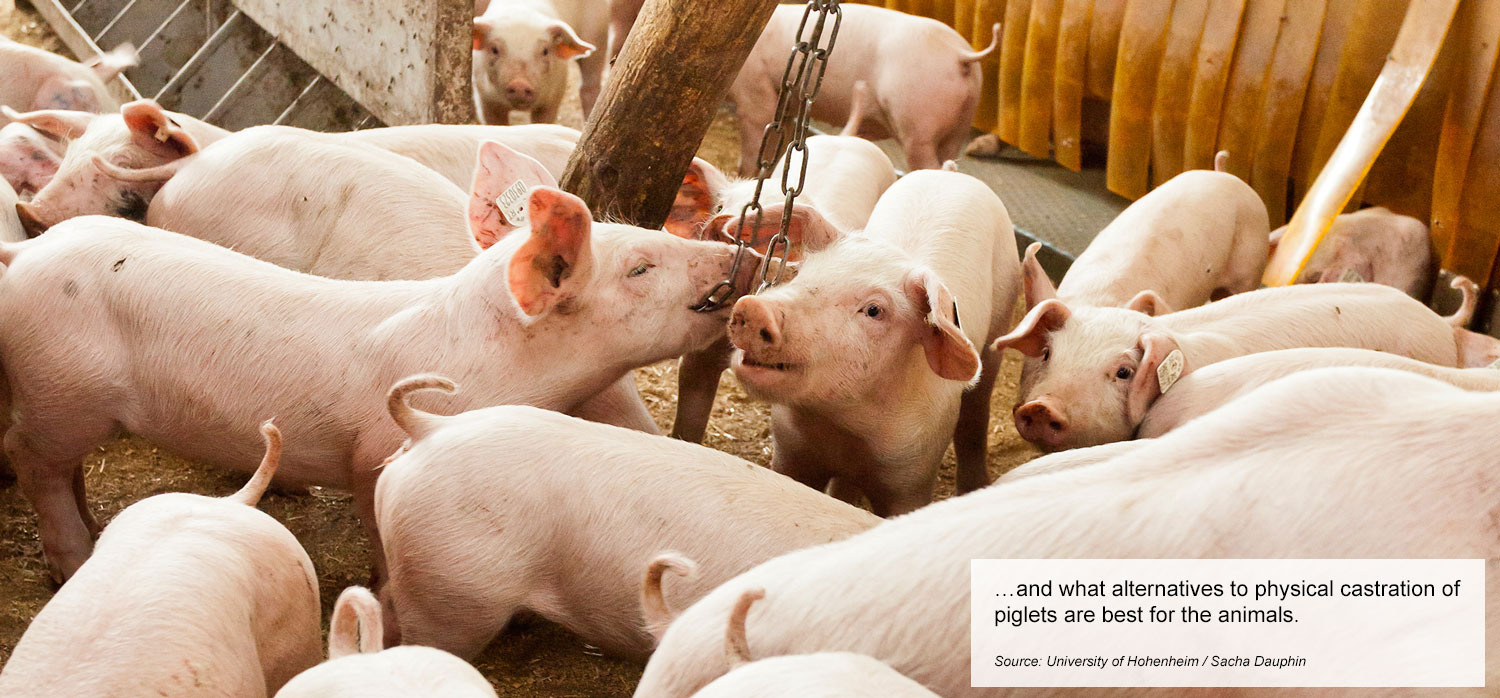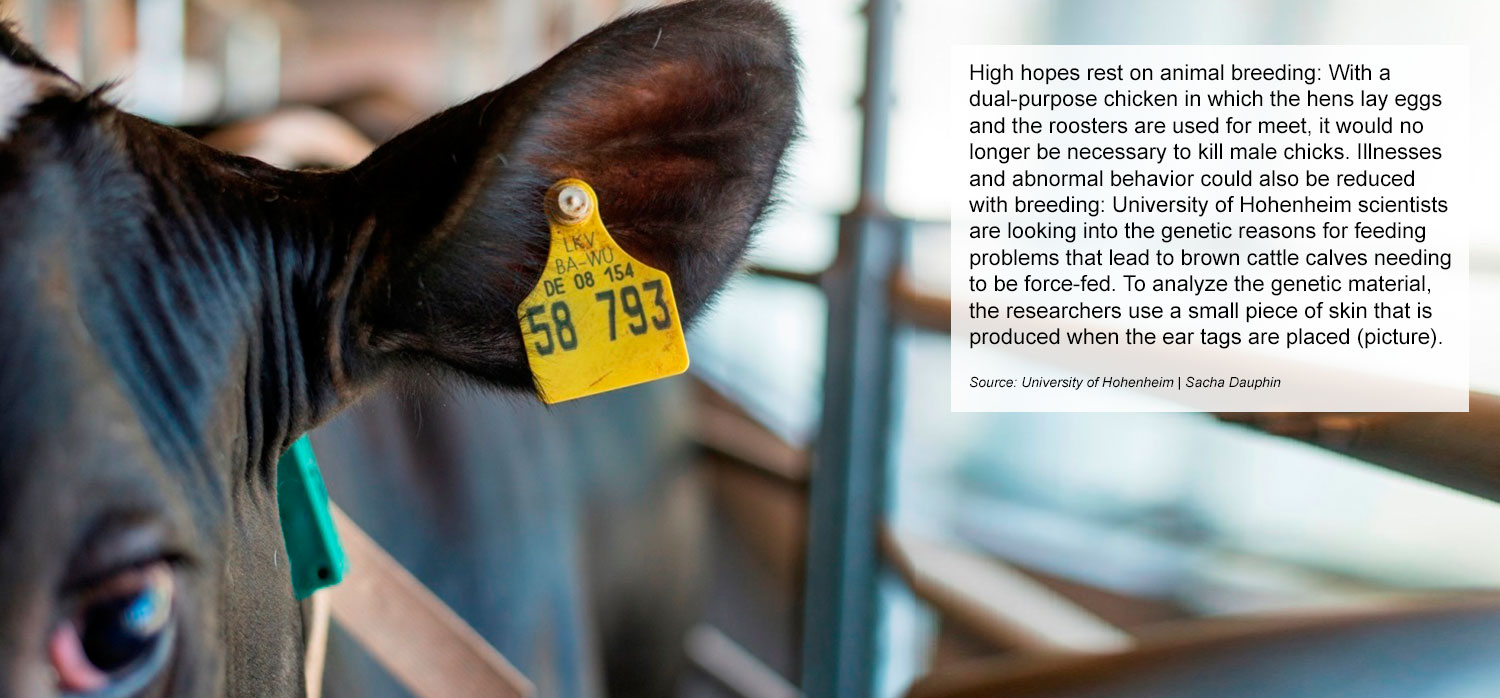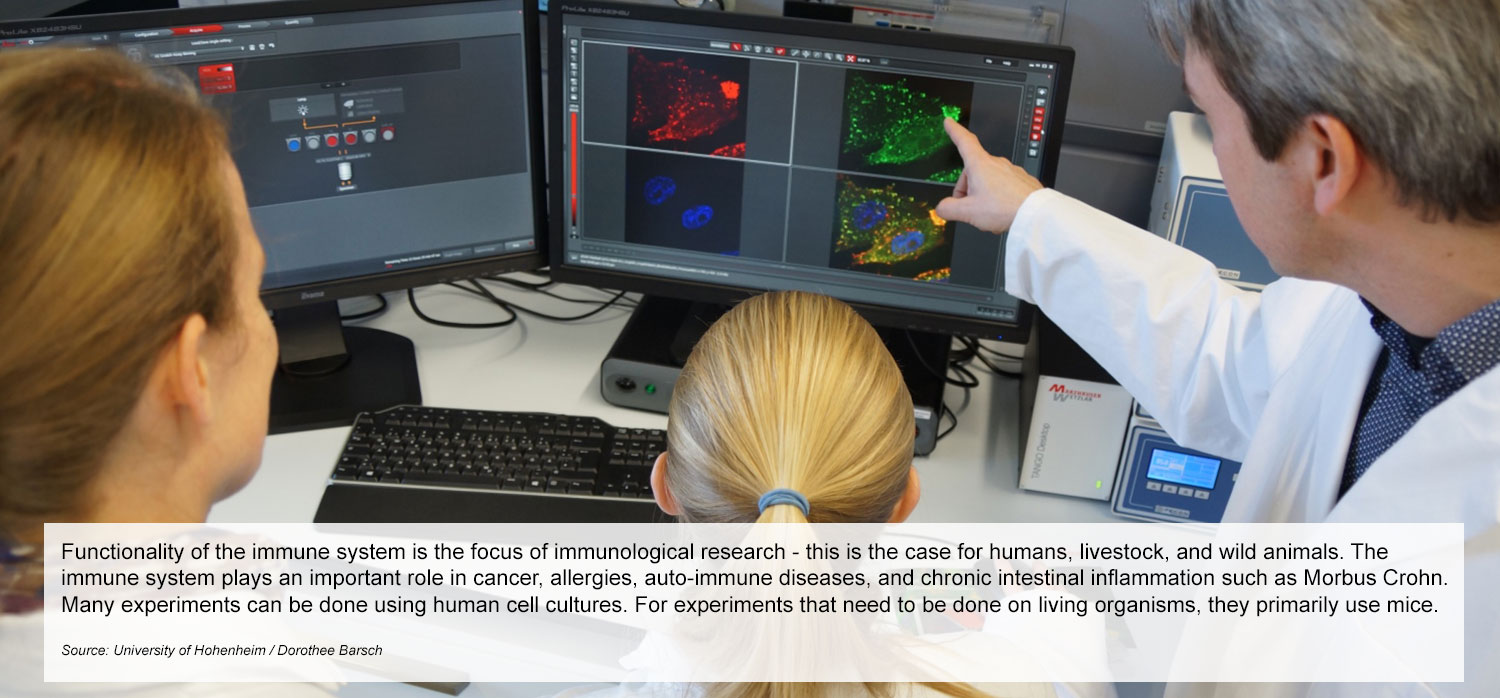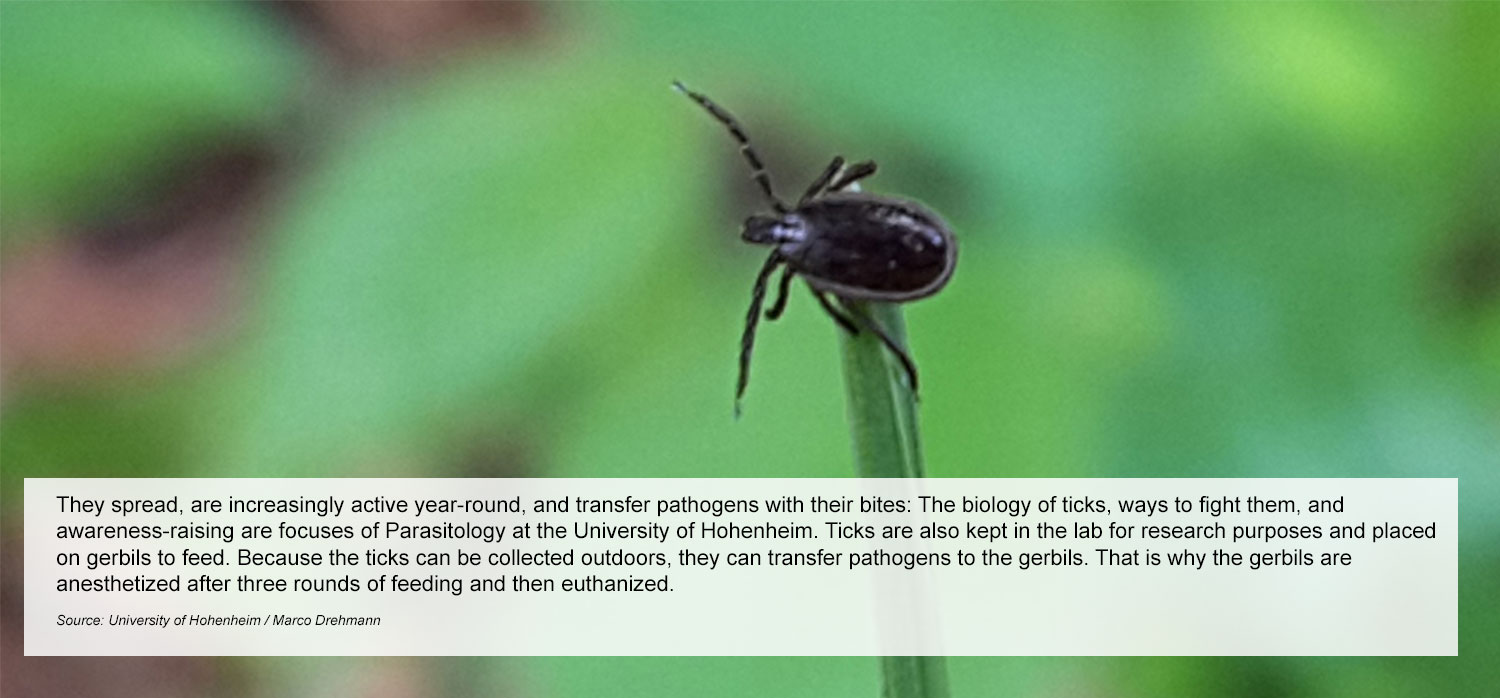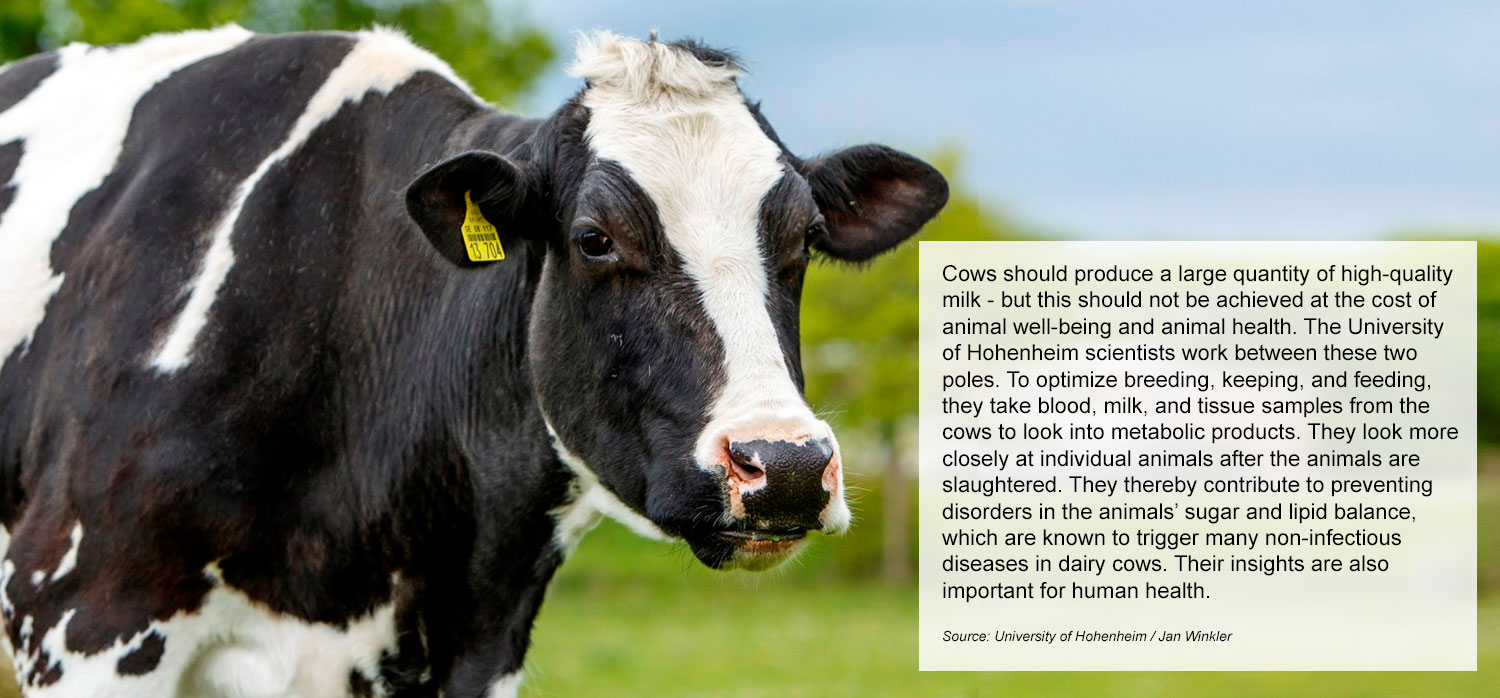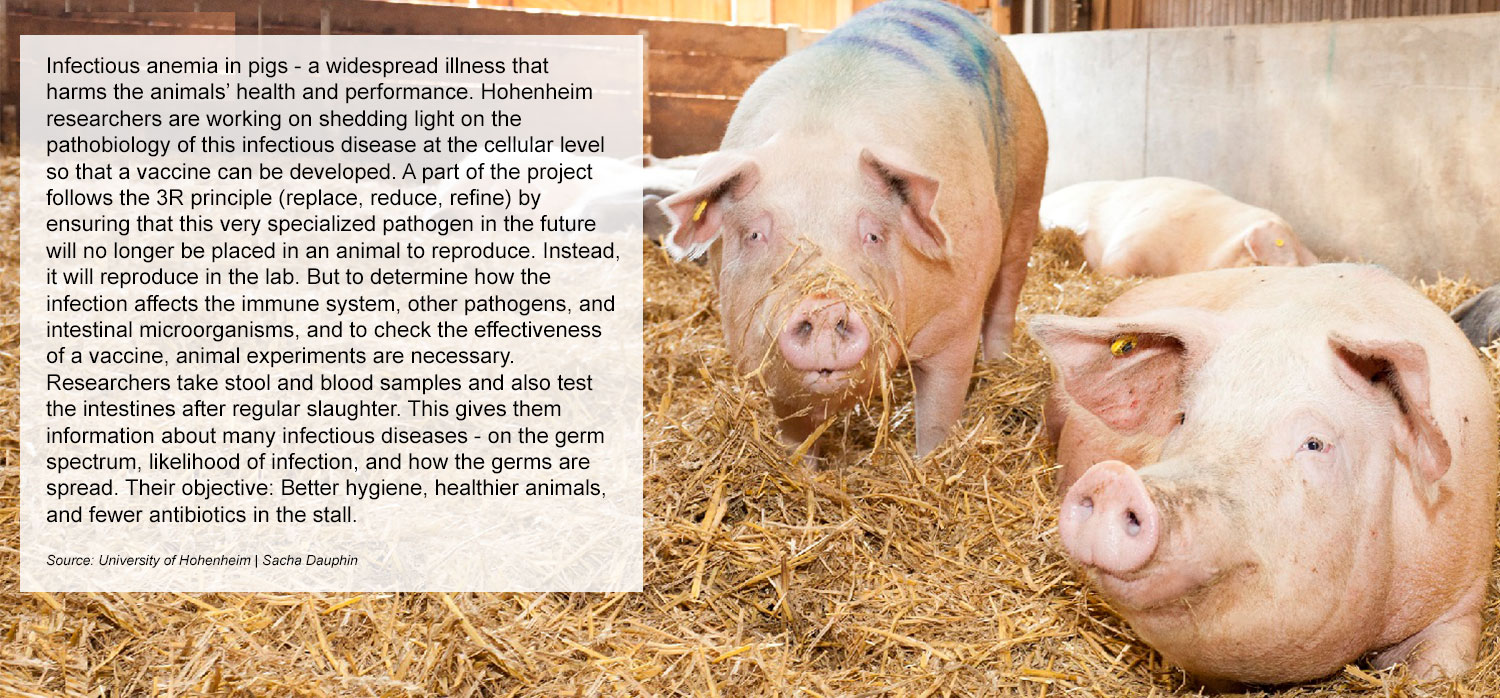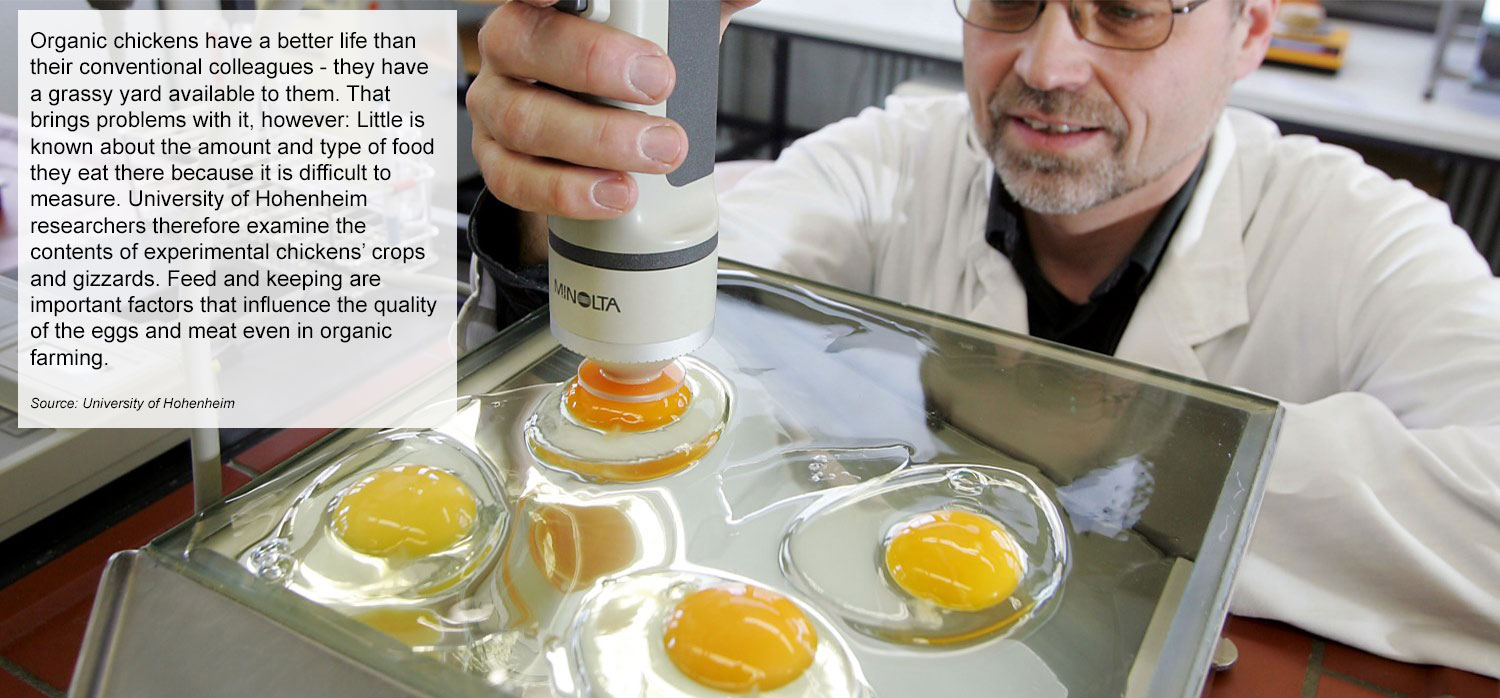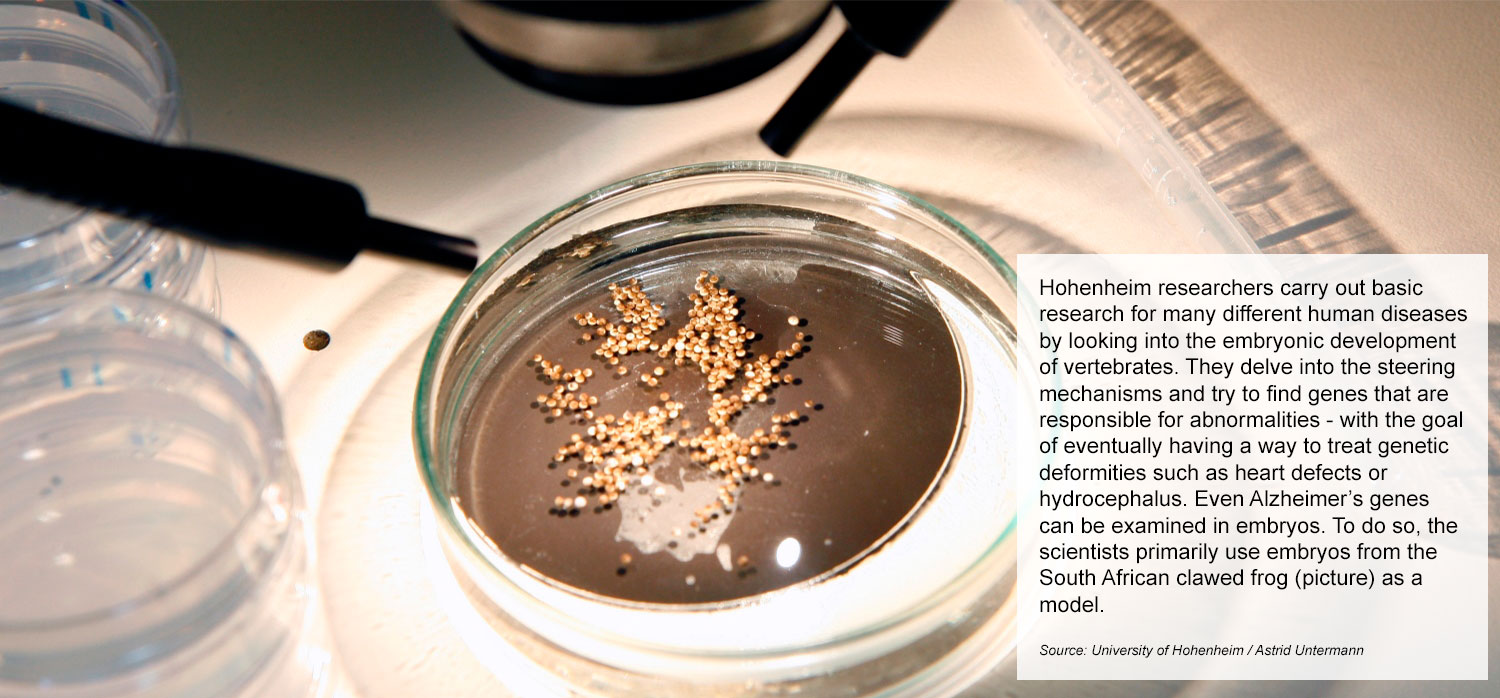Whether its in behavioral studies or basic research on serious human diseases: 80-90% of animal experiments at the University of Hohenheim are for research purposes. Mice, rats, frogs, and livestock are used in these experiments.
The reason: To answer many questions, animal experiments are irreplaceable despite all alternative available today. For example in basic research, which contributes to finding new therapy approaches for cancer, auto-immune diseases, or Alzheimer’s. Mice or rats thereby serve as model organisms. They are also necessary when researchers look into diseases transmitted by ticks or when they test the effects and absorption of certain ingredients in food.
Another focus of researchers at the University of Hohenheim: Livestock well-being. They are looking for gentler alternatives to methods typically used in farming - whether it is the practice of tail docking in pigs and lambs, castration of piglets without anesthesia, or the mass killing of male chicks. Scientists are searching for optimal housing and feeding conditions so that pigs, cows, or chickens feel comfortable, remain healthy and able to perform, and the environment and resources are also conserved.
Many studies with animals are not even legally considered animal experiments - for example when wild animals are only observed or only embryos are used. These research projects are also shown in the picture gallery.

